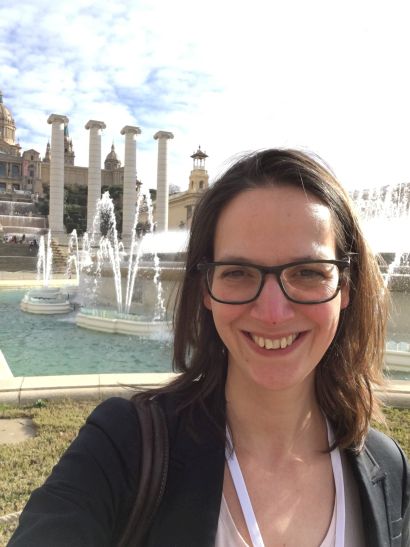The microenvironment surrounding head and neck tumors is typically very immunosuppressive. Currently, only a small proportion of patients benefit from immunotherapy because tumor-killing T-cells typically cannot get close to the cancer cells to have an effect. More effective therapies are urgently needed to combat this deadly cancer.
Molecular passengers with a mission
Cancer cells can modify the behavior of surrounding stromal and immune cells to its advantage through the release of small vesicles containing molecular and protein passengers containing messages. Dr. Rieneke van de Ven and co-PI Dr. Rubina Baglio recently discovered that one of the influential passengers in tumor vesicles is the growth suppression factor TGF-β. TGF-β needs to be activated before it can influence the tumor microenvironment, and this is where the protein GARP acts as a facilitator receptor. Dr. de Ven’s team also discovered recently that patients that have high GARP expression along head and neck tumor borders have a poor outcome.
Based on this, Dr. van de Ven and Dr. Baglio joined forces and hypothesized that the presence of GARP activates the TGF-β secreted by head and neck cancer cells, resulting in changed behavior of stromal cells and suppression of immune cells like dendritic cells and tumor-killing T cells. To find out, Cancer Center Amsterdam Foundation is supporting a new project called ‘The GARP/TGF-β axis: a critical immune regulatory pathway in head and neck cancer?’
Defining the mission
Dr. van de Ven explains, “We will isolate tumor vesicles from head and neck cancer cell lines and analyze whether TGF-β and GARP are present. Next, we will treat stromal and immune cells with these tumor vesicles to study how their behavior changes.”
Thwarting the mission
By removing or inhibiting TGF-β or GARP activity, Dr. van de Ven will determine if they are responsible for immune suppression. “If our hypothesis is true, we could inhibit the GARP/TGF-β interaction in combination with immune checkpoint inhibitor therapy to increase the number of patients who benefit from immunotherapy,” says Dr. van de Ven.
 Dr. Rieneke van de Ven, lead principal investigator
Dr. Rieneke van de Ven, lead principal investigator
For more information contact Dr. Rieneke van de Ven
People involved at Cancer Center Amsterdam – Amsterdam UMC:
Dr. Rieneke van de Ven
Dr. Rubina Baglio
Text by Lynita Howie
